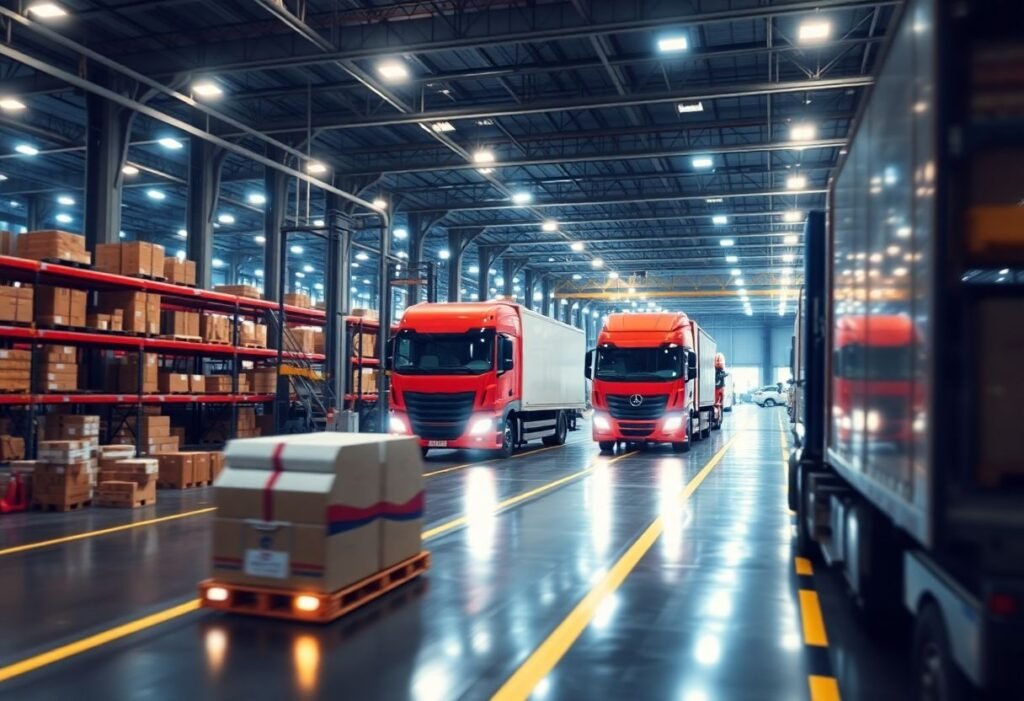The logistics industry is undergoing a transformative change thanks to automation. This shift is not just altering the way goods are moved but also enhancing efficiency and reducing costs throughout the supply chain. As companies strive for greater innovation, automation plays a crucial role in reshaping logistics to meet the demands of a dynamic market.
Understanding Automation in Logistics
Automation encompasses the use of technology to perform tasks with minimal human intervention. In the logistics sector, this includes systems such as robotic process automation (RPA), autonomous vehicles, and AI-driven inventory management. Companies are leveraging these technologies to streamline operations, enhance productivity, and ensure accuracy in their processes. With the integration of automation, logistics providers can process orders more efficiently, allocate resources effectively, and maintain a competitive edge in the market.
Impact on Supply Chain Efficiency
One of the most significant advantages of automation in logistics is improved supply chain efficiency. By implementing automated systems, companies can significantly reduce lead times, optimize inventory levels, and enhance order fulfillment speed. Automated warehousing solutions, such as automated guided vehicles (AGVs) and robotic picking systems, allow for rapid product retrieval and sorting. This expedited process minimizes delays and improves the overall customer experience, making businesses more agile and responsive.
Cost Reduction through Automation
Cost efficiency is a primary motivation for adopting automation in logistics. By replacing manual processes with automated solutions, companies can reduce labor costs and minimize human error. Furthermore, automation allows for better resource allocation and utilization which contributes to reduced operational costs. Companies that adopt automation can often achieve ROI within a short timeframe, making it a financially appealing option for logistics firms looking to enhance their profitability.
Innovation and Technological Advancement
The integration of automation in logistics has paved the way for numerous innovations. Common strategies include the use of machine learning algorithms to predict demand, the implementation of the Internet of Things (IoT) to monitor and manage supply chain operations, and the development of smart warehouses that utilize sensors and real-time data. These advanced technologies not only optimize logistics operations but also foster continuous innovation among firms aiming to enhance their service delivery and operational efficiency.
The Role of Data in Automation
Data plays a crucial role in automation within the logistics sector. Automated systems generate vast amounts of data that can provide insights into operational efficiency, customer behavior, and supply chain performance. By analyzing this data, businesses can make informed decisions, anticipate market trends, and enhance overall strategic planning. This data-driven approach supports the continuous improvement of logistics processes and contributes to sustained innovation within the industry.
The Future of Logistics with Automation
Looking ahead, the future of logistics will undoubtedly be influenced by the ongoing advancements in automation. As technology continues to evolve, logistics providers will need to adapt and embrace innovative solutions to stay ahead. This includes integrating emerging technologies such as blockchain for improved transparency, utilizing autonomous delivery methods, and becoming more environmentally sustainable through automation. The future landscape of logistics will be marked by an increased reliance on automated systems to drive efficiency and innovation, ensuring businesses can meet changing consumer demands.
Disclaimer: This article is for informational purposes only and does not constitute professional advice.





















